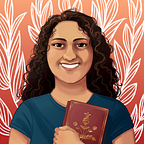A Fish Noticing Water
Do you know what’s in your water?
I’m sure you’ve heard the story.
There are these two young fish swimming along and they happen to meet an older fish swimming the other way, who nods at them and says “Morning, boys. How’s the water?” And the two young fish swim on for a bit, and then eventually one of them looks over at the other and goes “What the hell is water?” (David Foster Wallace, This is Water, 2005)
Similar to the fish in the story, all of us live in a world undergirded by centuries-old principles that we don’t notice, let alone think about consciously most of the time. However, there are times in our lives where we’re jolted awake by some event or experience that reminds us there is more to the world than the day-to-day grind.
Maybe we step out of our stupor to notice the beauty and intricacies of the natural world. We realize that the world we live in works in scientific, and yet, mysterious ways. That there are countless minuscule details we have to consciously look for.
And maybe the realization we come to is a bit more…ominous.
As a child of immigrants, I grew up focused on school and community. Although I was familiar with the names that some people used to tease me, like Sadam Hussein (someone once called me his mother; I was 8), I never really knew what was going on in other parts of the world. Although, I guess as American kids, we never really learn about anyone but ourselves and our supposedly perfect country (and much of that we forget after the AP exam).
I continued to grow up in my own little bubble, only really paying attention to the histories of some places, like South Africa, where I took a study abroad trip in undergrad. I told myself I wasn’t interested in “politics” or “government” and although I voted for Obama in 2008, I didn’t know enough to make it a proper informed vote.
So now, decades after these unnoticeable experiences, when a decades-long conflict explodes and I begin to see the impacts of it live on social media, I’m in shock. Literally. My nervous system goes into freeze mode for a bit while I try to process the innumerable dead and injured people (mostly kids) that I’m seeing on my feeds.
As a young, brown, Muslim woman in my mid-30s, I need to know more. So, I read, watch, and listen. And I’m in awe of how much I don’t know.
This isn’t the first time in my life I’ve felt like a fish noticing water. I’ve spent my life as a teacher; I thrive in a classroom, facilitating and gaining learning. The first few years of my career were spent teaching in a private community setting, rather than in a public school so I saw mostly homogenous groups of students.
Years later, never having been one for complacency in work or school, I restarted graduate school to learn about a “different” kind of teaching: special education. And I was taken aback by how much I don’t know.
Why did all of my teacher training never discuss students with disabilities or even the idea of disability itself and how it manifests in our systems?
Why did I not learn these strategies that would be helpful for any teacher to have in their toolbox walking into any classroom?
Once I noticed the water, I couldn’t go back to ignorance, so I’ve just kept learning and re-learning since then.
In October of 2023, the Palestine-Israel conflict escalated exponentially. I don’t think I need to go into details here — whichever side you take, you probably know the stories of the past 100+ days.
Although I’ve learned about capitalism, white supremacy, colonialism, etc., they’ve mostly been concepts I’ve attributed to more local contexts and policies. Internalizing the stories coming out of Palestine, the interviews with Palestinian scholars, the rebuttals of Israeli officials, the speeches at protests, the historical speeches condemning the occupation of Palestine, and the myriad of books that have been written on the topic, I see these concepts evident within the larger, global context.
I see the ways in which greed and power make decisions, rather than morals or values.
I see the ways in which the same countries that support violence and occupation and oppression over and over again.
I see the ways that colonialism, which is often seen as a relic of the past, still insidiously dictates the moves made by powerful governments even today.
I see the ways that the concept of democracy is tainted by the actions of powerful governments.
I see how we can magically create unending reserves of money to help a people across the world “defend” themselves, but we let our own people freeze, starve, and live without basic necessities.
I am disheartened. I am shocked. I am deeply disenchanted. I am infuriated.
But, I am also inspired. I am hopeful. I am curious. I am aware.
I see the millions of people around the world who use their voices to stand up for the Palestinian people.
I see Americans reading and watching and listening and learning. I see them becoming more aware.
I see people donating, fundraising, boycotting…whatever they can do to help.
And then I see whole countries — not the most powerful or the richest or the largest — but whole, nonetheless, stepping up to defend Palestine. Using whatever power they have to stop the genocide of a whole people.
Because, you see, it’s not just that the fish knows about the water and then keeps living its life. It’s that it helps others start to question and come awake and change. It’s that it finds ways to stay conscious of the water so it never has to go back to being oblivious.
